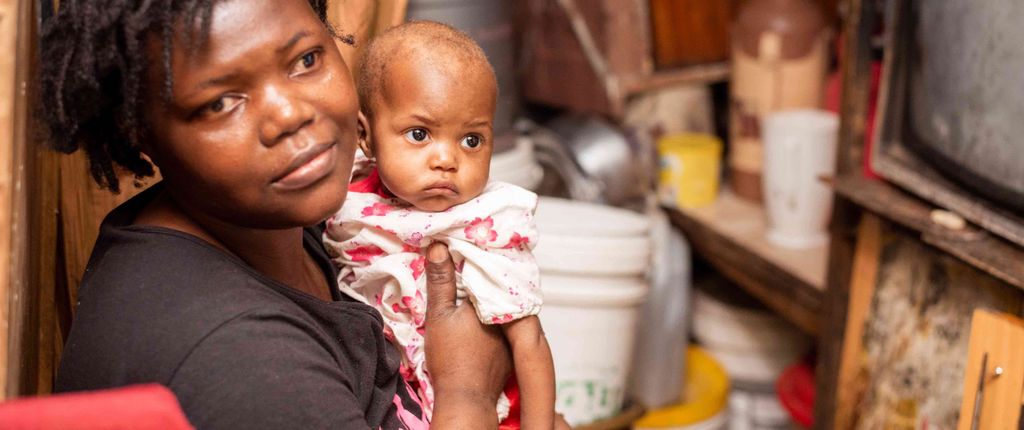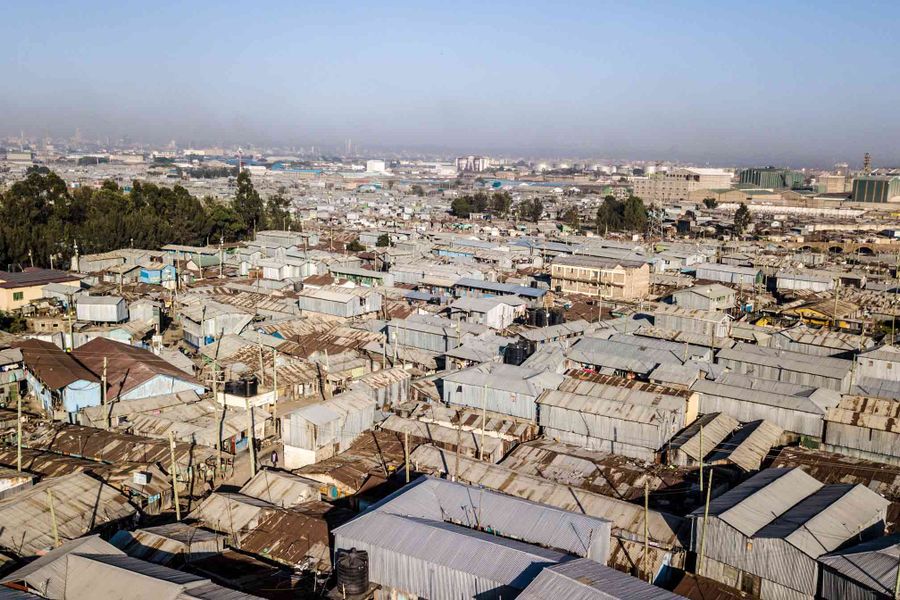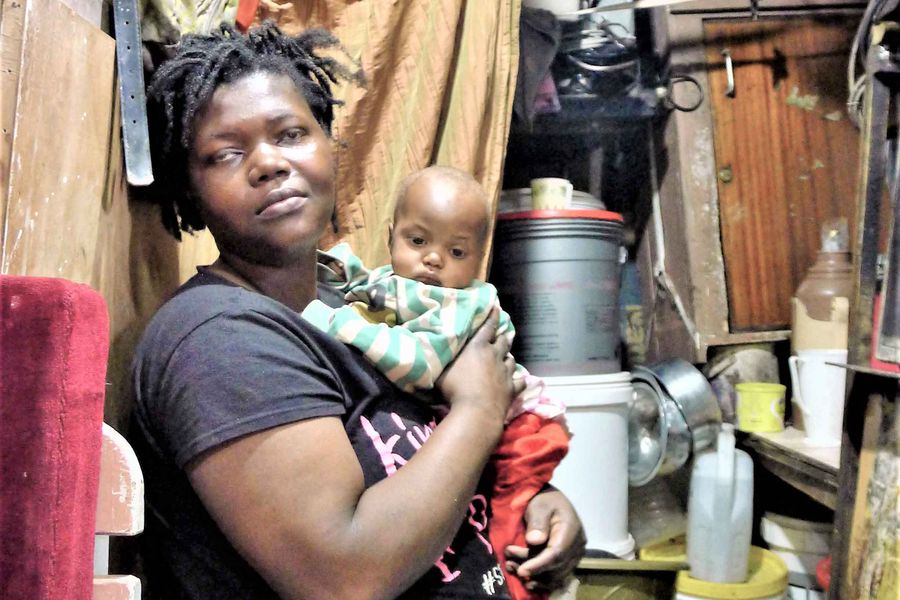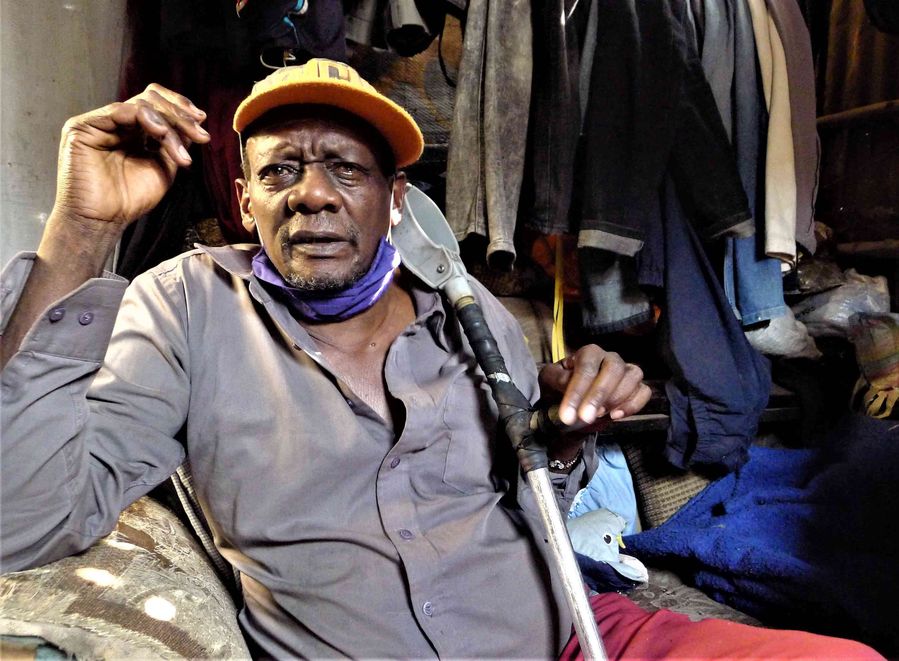
Pandemic in Kenya: Many people found themselves left with nothing
When Kenya reported its first COVID-19 casualties in March 2020, Nairobi imposed heavy lockdowns, forcing many out of their jobs. Day-labourers living in the sums were particularly affected: losing their livelihoods from one day to the next, they were no longer able to feed their families.

Gazing into the valley from the high Jujaroad, one of the busiest roads in Nairobi, one can see infinite corrugated iron shacks. The shacks are built close to the hill, and the Mathare River, which gives the neighborhood its name, flows close to the dwellings. The river is not big but more like a stream and filled with rubbish. No garbage trucks pick up the rubbish in this part of the city where about 500,000 people live. Narrow, unpaved paths wind between the houses. When it rains, they become slippery, especially when the pedestrians are wearing trainers or flip-flops. Keeping your distance is almost impossible here. The paths are not even a metre wide.
For the people living in Mathare, life has deteriorated since the outbreak of the COVID-19 pandemic, even though this hardly seemed possible. The informal settlements of Kenya's capital are mainly inhabited by day labourers. People, who are looking for a new job every day, going from door to door in rich neighbourhoods, asking to do the laundry or other jobs. But with the first lockdowns in 2020, many people lost these low-paid and insecure sources of income. Employers were afraid of contagion and no longer allowed anyone into their homes. From one day to the next, families no longer had an income. There is no unemployment insurance. That means: no income, no food.
Distribution of food to help survive

"The pandemic hit those people especially hard who already had little before. They had no savings to fall back on. In many households, only a meagre meal was put on the table every day. The people in Mathare were poor before the pandemic, but with the pandemic they literally started to starve," says Martin Schömburg, Malteser International's Country Coordinator in Nairobi.
Malteser International started distributing food, such as beans and rice, and cash shortly after the outbreak of the pandemic in 2020 to alleviate the greatest need for the very poorest, including Phoebe Archiang's family. She lives with her husband and three children in a house that measures about nine square metres. There is no electricity, no running water, no toilet, no kitchen, no bathroom. In the small shack, for which she pays about 25 euros rent per month, they cook, eat, play and sleep. All their possessions are stacked high. It is still hard to imagine five people sleeping here at night. When the lockdowns began, Phoebe's husband lost his income, and they no longer knew how to feed themselves and their children. Together with our Kenyan partner IECE, we supported the families in Mathare who were most in need. Phoebe's eight-month-old daughter was malnourished at the beginning of 2022 and could barely keep food down. In addition to the basic necessities of life, we subsidised health insurance for the girl and enabled the family to take her to the doctor for regular check-ups and to get medicines for her. At a clinic, the girl was given supplementary food so that she could recover from her malnutrition.
Tourists stopped coming and many people went hungry

In order to help the people in the slums like Mathare to avoid suffering from hunger in the long-term, our partner organisation IECE has held trainings. They showed people ways to become self-employed and how to set up budgets and calculate costs. They were also given start-up capital. "This was an opportunity for many. People started small businesses. A hairdresser, for example, was able to rent a room for her business. It helped many people to secure an income and food," says Schömburg. Men and women were also trained to make soap and cloth masks for COVID-19 protection, which they could then sell. This not only helped to better protect people from infection, but also provided them with an income.
68-year-old Timothy Mwanui Wanjiru was hit hard by the pandemic. In the past years, the widower lived off the rubbish from tourist hotels that landed on the dump in Korogoche. With the pandemic, tourists stopped coming and there wasn’t enough food on the dump for the poor people who survived on the rubbish of the wealthy. Like Timothy's 22-years old son. He sleeps on the garbage dump so that he doesn't miss a load of the trucks. To ensure people like Timothy were able to buy basic necessities of life, every month Malteser International provided them with cash.
Life hasn’t returned to normal yet
Almost three years after the start of the pandemic, the economic consequences are still strongly felt, even though day labourers are again on the daily lookout for opportunities to earn some money. Because of inflation, price increases and the severest drought in 40 years, around 4.35 million people in Kenya are now dependent on aid.








